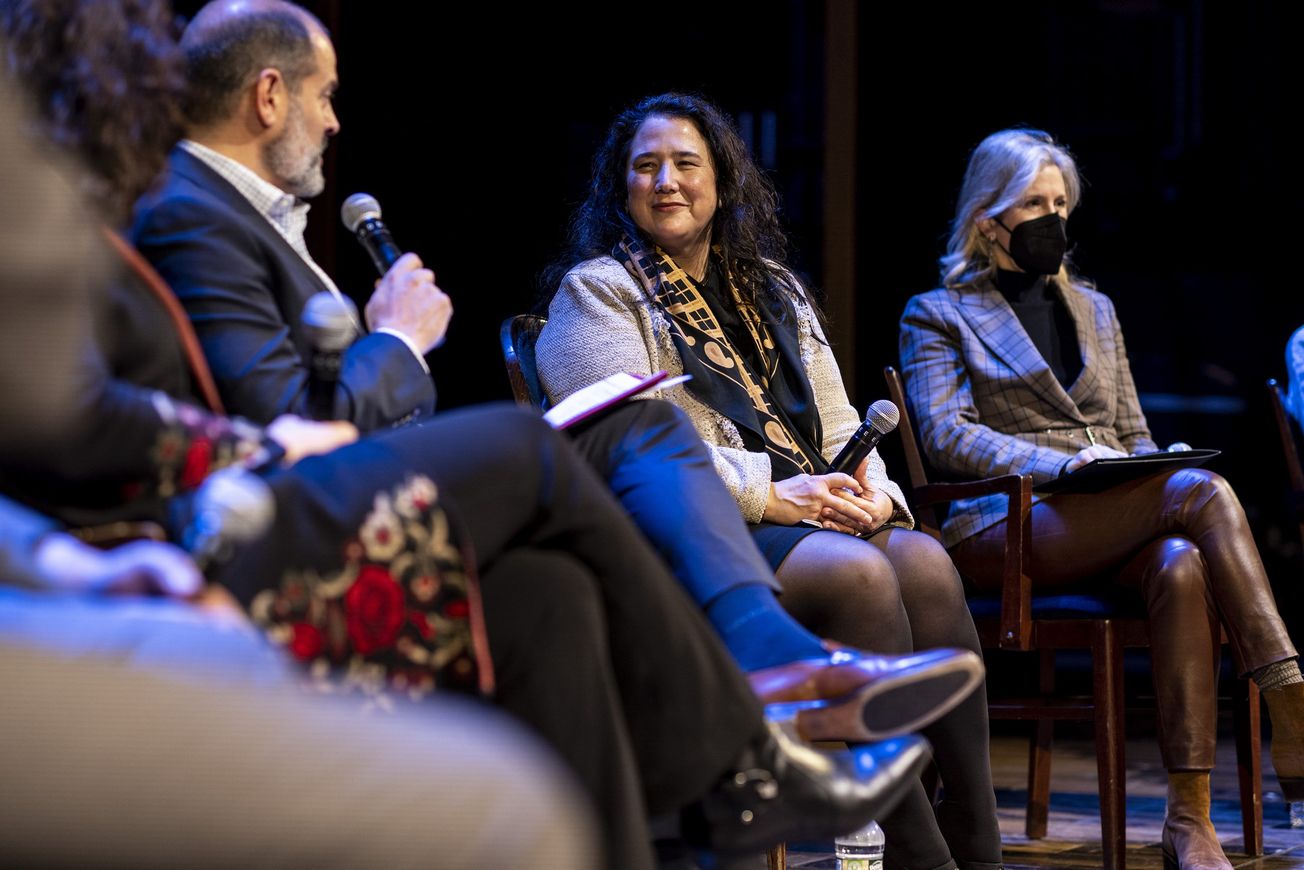As the Shuttered Venue Operators Grant program winds down, Isabella Casillas Guzman, head of the U.S. Small Business Administration, has been touring the country to witness its impact.
Guzman visited New York this week, with stops on Broadway, at the Apollo Theater and at the Blue Note Jazz Club, to speak with recipients who received grants of up to $10 million. The $16 billion federal program has been credited with reviving and helping stabilize the theater industry, among others, as it emerges from the shutdown.
The grant program was signed into law on Dec. 27, 2020, with backing from Sens. Amy Klobuchar (D-Minn.), John Cornyn (R-Tex) and Chuck Schumer (D-NY). Applications opened last spring, just as Guzman, whose agency was charged with managing the program, began in the role.

While the program experienced early delays and technical issues, momentum picked up in the summer. The agency has now awarded $13.5 billion, which includes initial and supplemental grant funding.
Grant recipients include many reopened theatrical productions, ranging from “Jagged Little Pill” to “Hamilton” to “Girl from the North Country,” as well as Broadway theater owners and production offices.
As a show of gratitude and as a welcome to the industry, Broadway League members spoke with Guzman at the Lunt-Fontanne Theatre Tuesday. Guzman was further immersed into the industry that evening when she attended a performance of “Six.”
“Our mutual goal was to continue the education for our members and to share the value and complexity of the Broadway industry,” said Jeff Daniel, co-chief executive of Broadway Across America and a host of the event.
In turn, Guzman said she has appreciated learning about the “entrepreneurial risks” it takes to produce theater, as well as its economic and cultural impact beyond Broadway.
The administrator spoke with Broadway News Wednesday at the Apollo Theater and answered questions on the program, including what caused delays at its beginning and where it could be headed.
Edited excerpts:
Broadway News: What is the current status of the Shuttered Venue Operators Grant program?
Administrator Isabella Casillas Guzman: The applications are closed, but we’re still reviewing [submitted] applications, as well as evaluating appeals and reconsiderations for all of the applicants. So far we’ve been able to award $13.5 billion to nearly 13,000 venues across the country and to talent reps and others, and so it’s been an exciting time to be able to start to tour and see their impact and to see that Broadway’s back.
BN: Productions and other entities that received a supplemental grant still need to spend the money by June 30, 2022. Is there any possibility for a further extension, or is that the end date?
Guzman: By the statute, that’s as far as we could go. I know that the Congress is contemplating changes that would extend that period of time to March [2023], but that’s not passed. That’s still in contemplation in Congress.
BN: There were delays in awarding the Shuttered Venue Operators Grants and in the rollout of the program. What happened and what have you learned?
Guzman: When I walked in, the Shuttered Venue Operators Grant program was just starting. I wasn’t happy where it was, because I wanted to make sure that it was as customer friendly and technology forward as possible and equitable. What I’ve challenged my team to do over time, as we’ve had to face these difficulties in the process, is to consider the customer and be as flexible as possible within these very strict guidelines of a federal grant program.
I always tell my team, ‘You have to be as entrepreneurial and adaptive as possible to support our small businesses,’ and to give them that fair shot, which is why I decided to open the appeals process. It is disaster relief, ultimately, not a normal grant situation, as we interpreted it, and so we were trying to give them flexibility to appeal and go for reconsiderations.
BN: Can you talk more about what led to the delays?
Guzman: We had to completely overhaul the management, as well as the processes that were put in place, so that we could streamline and get through the complicated eligibility structure that the program defines. And so that was basically a management and process change that we were able to implement in order to get the outcome and actually start awarding these venues in the thousands.
BN: Is there any possibility of further aid for Broadway or the theater industry through this program?
Guzman: We are confined by the statute. And so if they’ve received their award and they’ve received their supplemental [grant], that’s where it ends, in terms of the program. As we finalize all of our reconsiderations and appeals, we’ll know what the balance of the program remains and what we can do with those funds. We’ll make sure that we work with Congress to define that. But they’d have to redefine the program, of course, to spend that money in any other way than what it was intended.
BN: Will there be leftover funds once all of the existing grants have been processed?
Guzman: There’s a possibility. We definitely have enough money for everybody who’s being considered for appeal and reconsidered for dollar amounts.
BN: Do you think the program has fulfilled the goals set out in the legislation?
Guzman: Yes, I definitely believe so. Just hearing from the Broadway League and Broadway Across America yesterday and independent producers who joined us for conversation, they expressed how opening up on Broadway all of a sudden brought the crowds back and enlivened the street again. I always say that small businesses enliven neighborhoods, but that’s more true for theaters than anyone else. That impact has definitely been seen.


























































